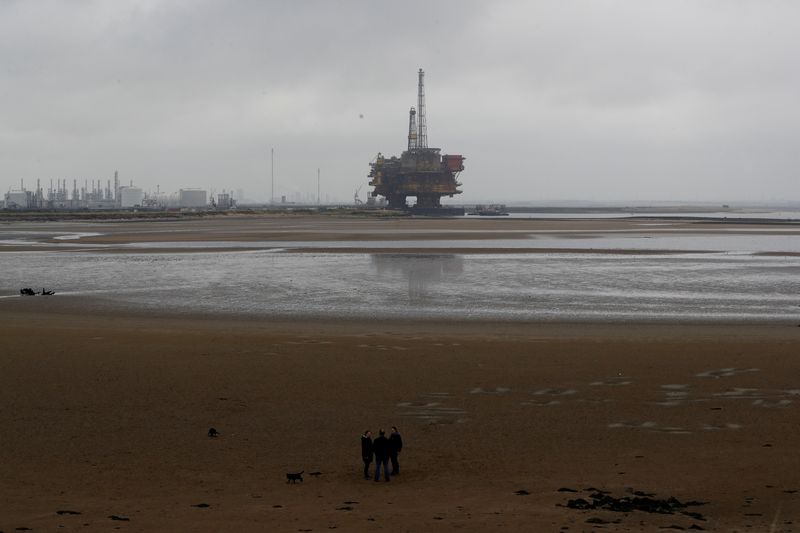By Shu Zhang and Sonali Paul
SINGAPORE/MELBOURNE (Reuters) - Oil prices fell on Thursday, extending a 5% slump in the previous session, as governments' renewed restrictions to curb a second wave of coronavirus infections and signs of a growing global oil supply glut send prices tumbling.
U.S. West Texas Intermediate (WTI) crude futures edged down 8 cents, or 0.21%, to $37.31 a barrel by 0743 GMT, while Brent crude futures were down 12 cents, or 0.31%, at $39.00.
Amid surging COVID-19 cases in Europe, France will require people to stay home for all but essential activities as of Friday, while Germany will shut bars, restaurants and theatres from Nov. 2 through the end of the month.
"The demand outlook is deteriorating as a second viral wave swept the U.S. and most part of the Europe. Stricter social distancing measures and more lockdowns may bring a larger-than-expected impact on global energy demand," said Margaret Yang, a strategist at DailyFX.
"The pandemic's resurgence is putting pressure on OPEC to delay its planned production hike in January," ANZ Research said in a note.
The Organization of the Petroleum Exporting Countries and allies, together called OPEC+, plan on tapering their production cuts in January 2021 from a current 7.7 million barrels per day (bpd) to around 5.7 million bpd.
Data from the U.S. Energy Information Administration on Wednesday provided further evidence of the growing glut: U.S. crude stockpiles rose by 4.3 million barrels in the week to Oct. 23, a bigger increase than expected.
Meanwhile, the prospects for any shift in the bitter trade dispute between China and the United States, whose relations have sunk to the lowest point in decades over a range of issues, remain unclear.
In an interview with Reuters six days before the U.S. election next week, top advisers to Democrat presidential candidate Joe Biden said he would consult with America's main allies before deciding on the future of U.S. tariffs on China, seeking "collective leverage" to strengthen his hand against Beijing if he is elected.
Oil had initially rebounded slightly from overnight losses in Asian morning trade on technical support and the prospect of tighter short-term supply as Hurricane Zeta slammed Louisiana.

But the hurricane is forecast to weaken into a non-tropical gale-force low by Thursday morning in the United States, and the return of U.S. production will add to existing oversupply, as Libya rapidly ramps up output after an eight-month blockade.